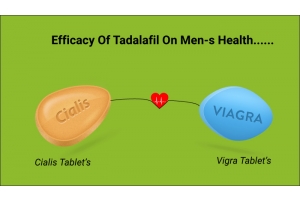Your Home Is Making You Infertile (Part 2)
Your infertility has a close link with environmental contamination.
But here’s the worst problem— most of the contamination is present in your home and maybe in your bedroom, and you have been inhaling and sucking them in without your notice.
In the current write-up, we are continuing the series of things at your home which makes it difficult for you to conceive.
So, let’s quickly roll our sleeves up to find out these items so that we get to manage them for the future to come.
Soft plastics— we eat and repeat on them.
As flexible and disposable plastics have gained social traction, they are around us never to shrink.
Moreover, you will have to live in solitude or a monk’s life to give up on these super sexy and flexy items— courtesy phthalates— the compound which shapes PVC and other flexible substances.
Though we use them for flexible plates, dishes, glasses, etc., they aren’t restricted to the kitchen area.
Phthalates are used in cushions, glue, vinyl floor tiles, and if you love sex toys— it’s again a piece of bad news for you.
We intake the chemical through our skin, we ingest the same through dairy products, and we administer it to our circulatory system through a lot of other ways.
Here’s what two different studies conducted on men and women had to say about the impact of the chemical on either gender.
While men with phthalates contamination in the body found it difficult to ejaculate healthy sperm and its overall quantity [1], the women faced the threat of miscarriages, losing the pregnancies, and other metabolic syndromes such as gestational diabetes. [2]
What to do: As said, you can’t do much to avoid this fantastic compound; however, taking the optimal use and switching to other therapeutic methods for eating a meal like in a copper utensil may help your egg-babies.
The laptops: boiling your sperms.
Going by the namesake of the laptop, if you— the man of the family is reading this write-up to address issues linked with infertility, you are killing your babies even before they come out of your penis.
Maybe you are yourself annulling the research work on infertility by failing to reproduce sperm cells.
Many studies in the past have proved that laptop nestled over your lap is closer to the scrotum— the sac which regulates the temperature of the testes— which eventually lowers the sperm count. [3]
You must have gone through the anatomy of men’s genital.
The role of the scrotum is to protect your testes from high heat, and your laptop is that source of heat which your balls hate.
What to do: With laptop sales reaching the new pinnacles, the best thing to do is to avoid being a couch potato and use it on the desk. There’s a saying “not all the desktops are laptops, but all the laptops are desktops.” If you think using smartphones would solve your problem, here’s the intimidating part— mobile phones in your pocket will also burn your cookies.
Teflon utensils— Not sticking with non-sticking pans.
The way you drool for Sunday pancakes, Teflon pans are to be your good friends.
And you love these pans because they give you every molecule of pancake without sticking any of it to its body.
However, while you eat pancakes on non-stick coated pans, you are slowly poisoning your child in the fetus.
Perfluorinated compounds— the most common non-stick chemicals— ensure that the bond between the utensil and food remains weak, but gulping piles of food cooked on such pans makes sure that you end up administering these chemicals.
The effects of these chemical compounds see to it that women find it difficult to conceive, or even if they do— their infants find it extremely tough to reach developmental highway markers. [4]
Despite the awareness and manufacturers researching alternatives, perfluorinated compounds don’t decay.
If they were around you ten years back, they are still around you in the form of microwave bags, stain repellents, paper additives, etc. and the best you could do is— research and avoid.
What to do: You can switch back to older means of cooking such as ceramic, stainless steel, or cast iron.








